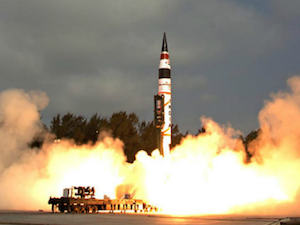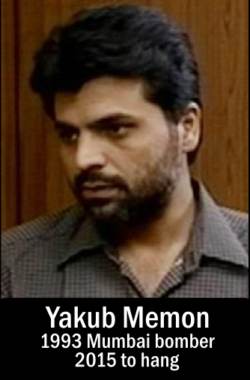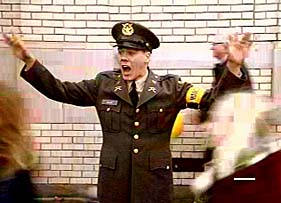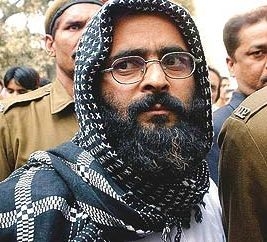[All Africa] A group of professors at the University of Ghana have demanded the removal of a Mahatma Gandhi memorial from the campus. They accuse the Indian hero of being "racist" towards Africans.
... the perfect being the enemy of the good...
In an online petition, Ghanaian academics led by Akosua Adomako Ampofo urged authorities to facilitate "the removal of the statue of Gandhi." The statue was presented to the Ghanaian government when Indian President Pranab Mukherjee visited Accra in June this year.
The teachers expressed dismay that the university administration had not consulted its staff before agreeing to install the statue in the institution's premises; they said it was the only memorial of a historical personality in the campus.
In the petition, the professors asked: "How will the historian teach and explain that Gandhi was uncharitable in his attitude towards the Black race and see that we're glorifying him by erecting a statue on our campus?"
As of the time of publication, just over 950 people had signed the online petition urging the statue's removal.
Born on October 2, 1869 in Gujarat
...where rioting seems to be a traditional passtime...
in western India, Mohandas Karamchand Gandhi, also known as the "Mahatma" (meaning "the great soul"), was famous for his non-violent resistance to British colonial rule.
He went to study law in London in 1888 and after a short stint back in India, left for Cape Colony (now South Africa) in 1893 to represent a local firm. Once in Africa, he experienced several instances of racism, including being thrown out of a train for being Indian - despite having a first-class ticket.
The incident, along with several others, is believed to have spurred him to launch a movement against color prejudice. He also started the Passive Resistance Movement in the colony in 1906, according to information on the website of Sevagram Ashram, a charitable trust founded by Gandhi in 1936 in the western Indian state of Maharashtra. South Africa's anti-Apartheid hero Nelson Mandela wrote of the inspiration Gandhi had provided him.
Gandhi's 'racist' ideas
The rationale for their demand, the professors said, was Gandhi's objectionable references to Africans as being socially lower than Indians. In his writings, the leader referred to black Africans as "kaffirs," a derogatory term for black people.
The petitioners quoted sentences from Gandhi's collected works. In an open letter to "The Natal Mercury" in 1894, he wrote, "A general belief seems to prevail in the Colony that the Indians are little better, if at all, than savages or the Natives of Africa. Even the children are taught to believe in that manner, with the result that the Indian is being dragged down to the position of a raw Kaffir."
In a speech at a public meeting in Bombay in 1896, Gandhi spoke about the racist treatment meted out to ethnic Indians in trains running through the South African colony. "Ours is one continual struggle against a degradation sought to be inflicted upon us by the Europeans, who desire to degrade us to the level of the raw Kaffir whose occupation is hunting, and whose sole ambition is to collect a certain number of cattle to buy a wife with and then, pass his life in indolence and nakedness."
Removing racist symbols
The petitioners used several examples from Gandhi's writings to urge authorities to remove the memorial. "We are of the view that if there should be statues on our campus, first and foremost, they should be of African heroes and heroines, who can serve as examples of who we are and what we have achieved as people."
"At world class universities, even former bastions of slavery, apartheid and white supremacy, statues and other symbols associated with controversial persons have been pulled down or removed," they added.
They referred to similar cases, including one in Yale in August, where authorities decided to replace stained-glass windows depicting enslaved Africans. In October 2015, Rhodes University established a team to find a new name for the university, named after Cape Colony's former prime minister, Cecil Rhodes - a British imperialist with notoriously racist political views.
Despite his legacy of non-violent struggle, Gandhi is a controversial personality. Other than his dubious comments on African people, there have been accusations regarding his approach towards sexuality and his relations with his wife and children, as well as his support for India's caste system. |
 India successfully test-fired its longest range nuclear-capable missile, confirming its status in the select group of nations with weapons that can travel from one continent to another.
India successfully test-fired its longest range nuclear-capable missile, confirming its status in the select group of nations with weapons that can travel from one continent to another.
 [DAWN] India's top court on Tuesday rejected a final appeal by Yakub Memon, a key plotter of
[DAWN] India's top court on Tuesday rejected a final appeal by Yakub Memon, a key plotter of  The US came in for special mention in the President's address, which is significant given the visa baggage that has hung in the air. But Modi has made it clear he would not hold bilateral relations hostage to a personal issue. For his part, US President Barack Obama too went out of his way to put the visa issue behind them by inviting Modi over in September. The dates and agenda for the bilateral summit are being negotiated now.
The US came in for special mention in the President's address, which is significant given the visa baggage that has hung in the air. But Modi has made it clear he would not hold bilateral relations hostage to a personal issue. For his part, US President Barack Obama too went out of his way to put the visa issue behind them by inviting Modi over in September. The dates and agenda for the bilateral summit are being negotiated now. A bomb exploded this afternoon in front of the hotel in Dhaka where India's President
A bomb exploded this afternoon in front of the hotel in Dhaka where India's President  [NY Times] India hanged a man on Saturday who had been convicted of involvement in the 2001 attack on Parliament that killed nine people. The hanging of the man, Afzal Guru,
[NY Times] India hanged a man on Saturday who had been convicted of involvement in the 2001 attack on Parliament that killed nine people. The hanging of the man, Afzal Guru, [Dawn] India's cabinet has approved harsher punishments for rapists, including the death penalty, after a brutal gang-rape in New Delhi that sparked national outrage.
[Dawn] India's cabinet has approved harsher punishments for rapists, including the death penalty, after a brutal gang-rape in New Delhi that sparked national outrage.